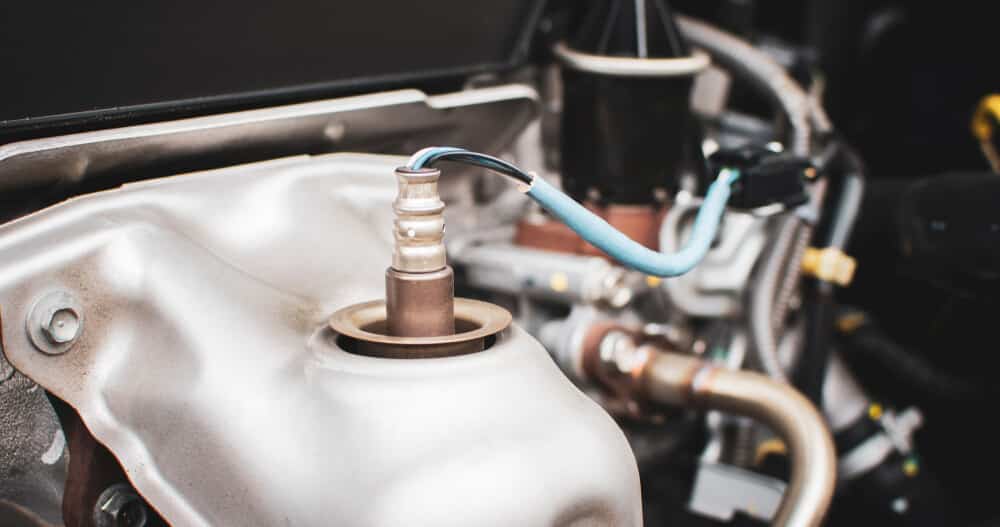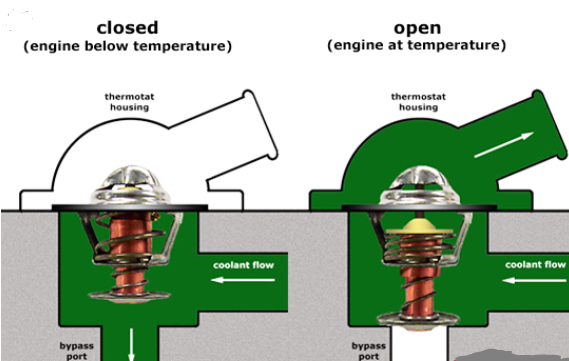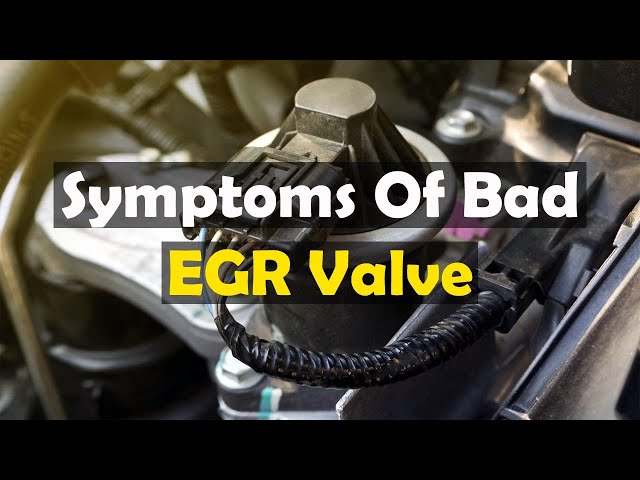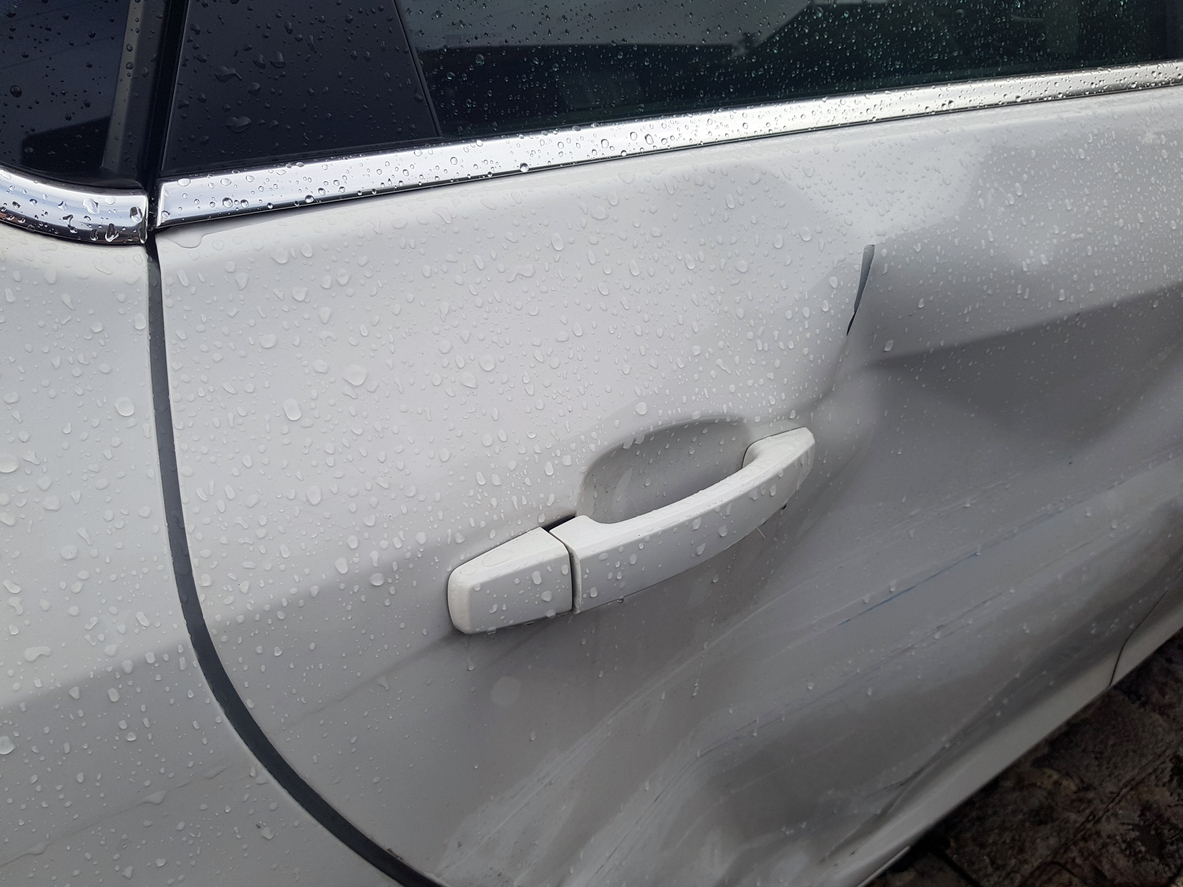Can a Bad Oil Pressure Sensor Cause Rough Idle
A faulty oil pressure sensor can indirectly cause a rough idle. It may lead to incorrect signals to the engine management system.
A vehicle’s smooth operation hinges on the accuracy of its oil pressure sensor. This small component plays a key role by monitoring the engine’s oil pressure and sending data to the vehicle’s computer system. When the sensor fails, it can send false information, potentially causing the engine control unit (ECU) to make improper adjustments.
Such misinformation might affect fuel mixture, engine timing, and in some cases lead to rough idling as a secondary effect. This can be particularly noticeable when the car is at a stop or running at low speeds. It’s vital for drivers to address sensor issues quickly, as they can affect engine performance and fuel efficiency, and can also pose a risk to the vehicle’s long-term health. Understanding the interlinkages between sensor data and engine behavior is essential for maintaining a smooth-running engine.
Symptoms Of Faulty Oil Pressure Sensor
Identifying symptoms of a faulty oil pressure sensor is crucial for your vehicle’s health. A misbehaving sensor can lead to a rough idle and false engine warnings. By understanding these symptoms, you can ensure quick and accurate diagnosis.
Rough Idle And Engine Misbehavior
A bad oil pressure sensor often results in rough engine idle. It may feel like the engine is vibrating unusually or shaking when the car is stopped or at a red light. Sometimes, you might also notice the engine stalling or hesitating during acceleration. Fluctuating idle speed is another sign to watch out for.
Warning Lights And False Alarms
When an oil pressure sensor fails, it may trigger dashboard warning lights. The oil pressure light could incorrectly indicate low oil pressure due to sensor issues. Additionally, a malfunctioning sensor might cause the check engine light to illuminate. These false alarms can be confusing and misleading for drivers.
Here’s a quick reference to the common symptoms:
- Intermittent Oil Pressure Light: Light flashes on and off.
- Inconsistent Gauge Readings: Oil pressure readings change erratically.
- Engine Noise: Unusual noises due to incorrect oil pressure readings.
The Role Of Oil Pressure In Engine Health
Think of oil as the lifeblood of your car’s engine. Just as blood must flow continually to keep our bodies healthy, oil must circulate within an engine to ensure its well-being. Oil pressure indicates how well this vital fluid is moving through the engine’s intricate pathways. Adequate pressure keeps all moving parts well-lubricated and cool, warding off damage and wear. Now, let’s delve into why maintaining this pressure is essential for your engine’s smooth operation.
Ensuring Proper Lubrication
A steady flow of oil prevents friction between engine components. When the oil pressure sensor malfunctions, it may fail to alert you to oil pressure dips. This can lead to:
- Increased wear and tear on engine parts
- Heightened risk of overheating
- Suboptimal lubrication, causing rough idle
Lubrication is key for engine components to interact seamlessly. Without it, parts grind against each other, potentially causing serious engine health issues.
Impact On Engine Performance
A bad oil pressure sensor may misread pressure levels leading to performance dips. This could manifest as:
- Rough idling characterized by jittery starts and shuddering
- Uncertain acceleration
- Unusual engine noise
With a faulty sensor, you risk driving with low oil pressure, unknowingly harming your engine. Real-time, accurate signals are vital for correcting pressure issues and ensuring smooth engine performance.
Diagnosing Idle Irregularities
When your vehicle starts to idle roughly, it’s like a cry for help. It often points to engine problems. One such culprit could be a bad oil pressure sensor. Let’s explore how this tiny part can cause big issues.
Connecting Sensor Issues To Idle Problems
An oil pressure sensor plays a critical role in engine health. It monitors oil pressure, ensuring it’s right for your engine to run smoothly. If this sensor fails, it might send incorrect data to the car’s computer. This can cause the engine to change its behavior, leading to rough idling.
Tools And Techniques For Diagnosis
Diagnosing an oil pressure sensor issue requires specific steps:
- Start with a visual inspection of the oil pressure sensor for any signs of damage.
- Use a multimeter to check the sensor’s voltage readings.
- Consult the vehicle’s manual to understand normal sensor readings.
- If readings are off, perform an oil pressure test with a mechanical gauge.
For an accurate diagnosis, some mechanics may also use advanced diagnostic scanners to read error codes from the car’s computer.

Credit: www.reddit.com
Mechanical Links Between Oil Pressure And Engine Idle
Understanding how oil pressure affects engine idle requires a dive into engine mechanics. The engine’s heart relies on oil like blood in our veins. Poor oil pressure can disrupt its rhythm.
The Hydraulic System Of An Engine
Every engine operates through a complex hydraulic system. This system needs stable oil pressure to function properly.
- Oil circulation smoothens the engine parts’ movement.
- Correct oil pressure ensures each component works together without hiccups.
Oil acts as a cushion, reducing wear on engine components. It is vital for maintaining a steady idle.
Sensor Malfunctions And Engine Feedback Loop
Engine sensors, like the oil pressure sensor, play a crucial role in maintaining a smooth engine idle.
| Sensor Function | Idle Impact |
|---|---|
| Measures oil pressure | Communicates with the engine control unit (ECU) |
| Signals ECU for adjustments | Ensures optimal performance |
If the sensor sends incorrect signals, the ECU receives false feedback. This can lead to erratic idle behavior, such as rough idling.
An engine with rough idle can trigger check engine lights, poor fuel economy, and potentially serious engine damage.
Addressing The Problem: Repair And Maintenance
When your car idles rough, it’s like a cough in an otherwise healthy body. Sometimes, a bad oil pressure sensor is the culprit. It might sound small, but it can cause big problems. Lucky for you, fixing it can be straightforward. Below you’ll find steps to replace the sensor and tips to keep your engine humming smoothly.
Steps For Replacing An Oil Pressure Sensor
A faulty oil pressure sensor needs a quick fix. Follow these steps to get your car running smoothly again:
- Locate the sensor – Find it attached to the engine block.
- Gather tools – You’ll need a wrench and maybe a special socket.
- Safety first – Cut the engine and wait to cool.
- Remove – Take out the old sensor carefully with the wrench.
- Install – Replace with a new sensor, tightening it snugly.
- Check – Start your engine and look for proper readings.
Preventative Measures And Regular Check-ups
Prevention is better than cure, always. Here’s how you can avoid sensor-related issues:
- Regular Oil Changes – Keep engine oil fresh and full to reduce sensor stress.
- Visual Inspections – Look for oil leaks or damaged wires around the sensor.
- Professional Advice – Have a mechanic do periodic checks during service.
Remember, a healthy engine depends on the accurate info from a good oil pressure sensor. Treat your car right, and it’ll do the same for you.
Credit: www.quora.com
Case Studies And Real-world Scenarios
Exploring the role of the oil pressure sensor in engine performance, it’s eye-opening to see real-life cases. A bad sensor can indeed be the troublemaker for a rough idle. We’ll dive into various instances that prove this point. These stories outline the impact a flawed sensor can have and how resolving it brings engines back to life.
Common Vehicles And Reported Issues
- Ford F-Series: Oil pressure gauge fluctuations leading to engine misfires.
- Chevrolet Silverado: Faulty sensor readings cause unexpected engine stalling.
- Honda Accord: Unreliable idle with warning lights on dashboard despite adequate oil levels.
Diagnosing these issues often pointed back to a common culprit: the oil pressure sensor. Faulty sensors display erratic behavior. They send incorrect data to the car’s computer system. This misinformation can alter the engine’s performance, hence causing a rough idle.
Success Stories Of Diagnosis And Repair
| Vehicle | Symptom | Resolution |
|---|---|---|
| Toyota Camry | Idle dips and engine shudder | Replaced the oil pressure sensor and recalibrated. |
| Nissan Altima | Loud engine noises, oil light on | Sensor replaced, rough idle resolved after reset. |
| Jeep Grand Cherokee | Uneven acceleration, idle problems | New sensor and system clean-up restored performance. |
From these success stories, it’s clear that addressing sensor issues quickly can turn things around. Prompt diagnosis and repair not only fix rough idle but also prevent further engine damage.
Credit: www.reddit.com
Frequently Asked Questions For Can A Bad Oil Pressure Sensor Cause Rough Idle
Can Bad Oil Pressure Sensor Lead To Rough Idle?
A bad oil pressure sensor can falsely signal low pressure. This misreading may cause the engine’s computer to adjust functioning improperly, possibly leading to a rough idle or other engine performance issues.
How Does Oil Pressure Sensor Affect Engine Idle?
The oil pressure sensor monitors engine oil pressure. If faulty, it sends incorrect data to the ECU, which might change timing and fuel delivery, leading to unstable idle and potential engine harm.
What Symptoms Indicate A Failing Oil Pressure Sensor?
Symptoms of a failing oil pressure sensor include erratic oil pressure readings, warning lights on the dashboard, and in some cases, rough engine idle or unexpected engine noises.
Do Oil Pressure Issues Damage The Engine?
Yes, unresolved oil pressure issues can lead to significant engine damage. They affect lubrication and can result in increased friction, wear, and overheating, potentially causing engine failure.
Conclusion
Navigating car troubles can be daunting, but understanding the impact of a faulty oil pressure sensor is crucial. It can indeed lead to rough idle, among other engine issues. Always prioritize timely diagnostics and repairs to maintain your vehicle’s health.
Remember, a smooth ride starts with attention to every detail, no matter how small.

